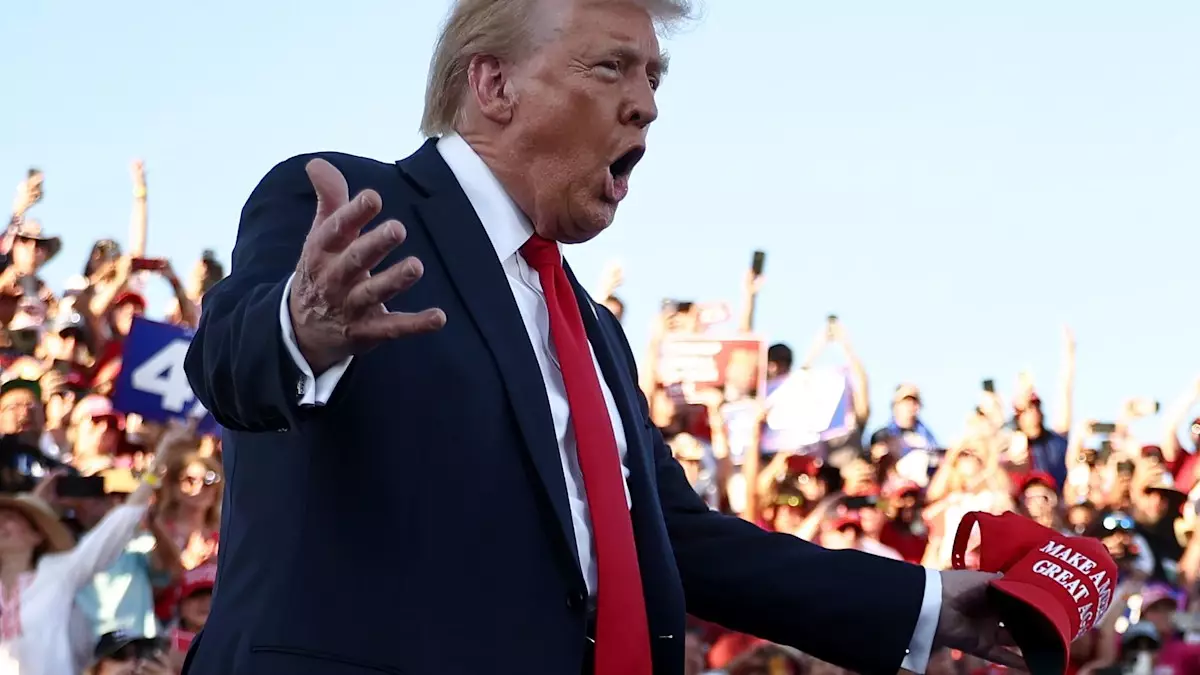The recent arrest of Vem Miller, a 49-year-old man with firearms and counterfeit credentials, marks a pivotal moment in the ongoing narrative surrounding political rallies and public safety in the United States. Following a rally for former President Donald Trump in California, Riverside County law enforcement reported that they may have circumvented a potential assassination attempt. This incident sheds light on various issues, including security protocols for political events, the motivations behind such threats, and the implications for political discourse in a highly polarized environment.
On a day that saw many supporters braving extreme heat to attend Trump’s rally in the Coachella Valley, the timely response of Riverside County deputies highlights the importance of preparedness in ensuring safety at political gatherings. At a routine checkpoint merely a mile from the venue, Miller’s suspicious vehicle was flagged for irregularities. The discovery of a loaded handgun, a shotgun, and a high-capacity magazine not only raised immediate alarm but also brought to the forefront concerns about armed individuals seeking to disrupt democratic processes. In an era where political violence seems increasingly plausible, incidents like this force us to reconsider our strategies for safeguarding political figures and their constituents.
Sheriff Chad Bianco mentioned that Miller is suspected of having ties to a right-wing, anti-government group, igniting discussions about the motivations driving individuals to brandish weapons at political events. Miller’s educational background, having earned a master’s degree from UCLA and running for the Nevada State Assembly in 2022, contrasts sharply with the ideology commonly associated with violent political actions. This dichotomy raises critical questions: What spurs an educated individual to resort to extreme measures, and do political narratives contribute to a rise in violent rhetoric? As political campaigns intensify, the line between advocacy and aggression blurs, which can lead individuals down a dangerous path.
The incident also underscores a critical need for reevaluating safety protocols at political rallies. High-profile events like Trump’s, attended by throngs of supporters, can attract not just fans but also adversaries who may harbor violent intent. The sheriff’s statement that Miller’s intentions were presumably to target Trump emphasizes the necessity for vigilant security measures, including even more rigorous checks of credentials and thorough inspections of vehicles in proximity to the event. As political tensions escalate, law enforcement must adapt quickly to safeguard public figures while allowing citizens the right to assemble peacefully.
The implications of this incident stretch far beyond the immediate threats posed by individuals like Miller. It reveals a broader issue of political violence and raises alarming questions about the state of democratic engagement in the United States. Citizens are left to grapple with the reality that participating in a political rally could expose them to genuine risks. The decision by Trump to rally in California—a state traditionally favoring Democrats—brings to light the complexities of political strategy in a fractious landscape, raising debates about the engagement of diverse audiences in discussions that shape the nation.
As of now, Miller has been released on bail and is due to appear in court early next year. While he has claimed no immediate threat to the safety of Trump or the rally attendees, the atmosphere surrounding such events continues to grow precarious. The lack of official commentary from Trump’s campaign or the U.S. Secret Service indicates a potential hesitance to engage with the rising security concerns, a reality starkly felt by both supporters and opponents. Moving forward, it is critical for political organizations to address and amend their preventative measures in order to foster secure and peaceful discourse.
The arrest of Vem Miller is a glaring reminder of the real and present dangers that lurk within the charged atmosphere of American politics. As the country inches towards an increasingly divisive electoral climate, the necessity for comprehensive security and a deep understanding of underlying motivations will be paramount. The world is watching how the discourse surrounding political events evolves in response to these unsettling dynamics.

